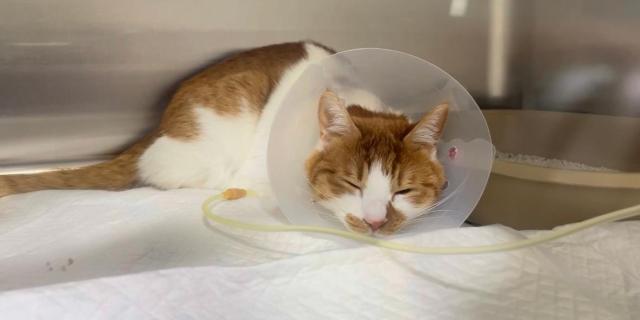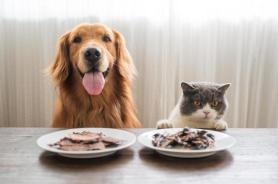
SEOUL, April 19 (AJU PRESS) - Pet lovers in Korea have been shocked as nearly 60 cats have died of a mysterious illness since March, which they speculate to be linked to local cat foods.
As of Friday, at least 152 cases, including 57 fatalities, have been reported, according to Life, an animal rights activist group.
Affected cats showed acute neurological and muscular symptoms, including kidney failure and difficulty standing or moving. Sick cats were found across the country regardless of breed, vaccination history, or living environment.
The Korean Veterinary Medical Association (KVMA) is currently conducting an investigation to identify the cause of the disease.
Owners’ communities on the messenger app Kakao Talk and other sites have identified a common factor among the sick cats: They had been fed cat foods produced by a major Korean pet food maker between January and April.
The company produces around 15 types of cat foods under various brands through original equipment manufacturer (OEM) and original design manufacturer (ODM) contracts.
It also exports pet food to the North American market, with initial sales exceeding $700,000 after it expanded to cities like New York and Vancouver in 2023.
"We cannot comment on the situation regarding cat foods at this time,” an official of the pet food manufacturer told Aju Press on Thursday, declining to disclose her name and title. "An investigation is underway, and we are waiting for test results before making any announcements."
The result of the investigation is expected within a week or two, the veterinary association said. It has advised cat owners to remain watchful and promptly seek veterinary care if their pets exhibit symptoms of nervous or muscular diseases.
"While investigation results are pending, we suspect a potential common factor among sick cats, but conclusions will only be drawn upon receiving lab results," a KVMA official said.
Shin In-seob, head of Life, said the Busan-based animal rights group has collaborated with veterinary clinics that treated affected cats and that a thorough investigation is being carried out. "We cannot disclose anything at the moment. Any unverified comments we make can cause damage to the pet food company or other organizations," Shin said.
Kevin Drouin, the commercial attaché at the Offices of the Quebec Government in Seoul, is one of the many desperate cat owners.
His cat named Shara was hospitalized on April 10 after showing symptoms of vomiting, limping, and shaking. The cat's condition continued to deteriorate even after she was treated at a veterinary clinic.
Drouin and his spouse Sarana Lkhasaranova soon found that there were dozens of families who have sick cats with similar symptoms, many of them burdened with costly clinic fees. "Some owners resorted to taking out loans to cover hospital fees," Drouin said.
They hope Korea and its society will implement stricter standards to prevent similar tragic events from happening again.
"Amidst the despair, I held onto hope that collective action and accountability from responsible parties could prevent such tragedies in the future. I appeal to the strength and unity of Korean society to enact meaningful changes and implement stronger standards for the pet animal industry," the spouse said.
Copyright ⓒ Aju Press All rights reserved.




